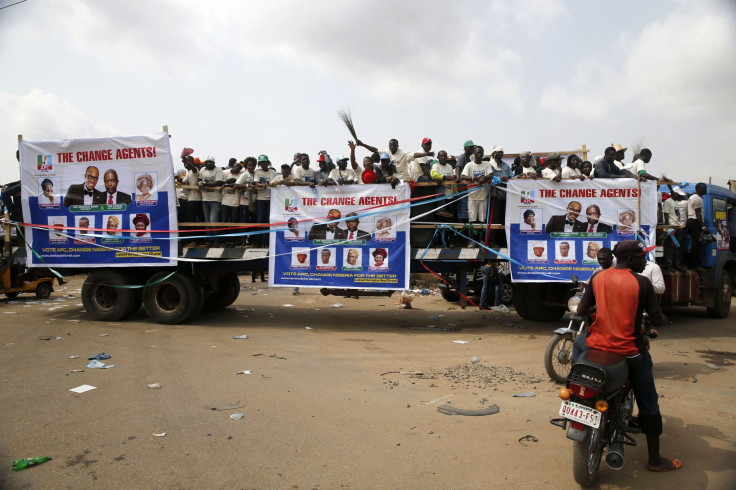Nigeria Elections: Women Urged To Vote, Just Over Half Are Registered

Women must vote in next week's Nigerian elections, a non-governmental organization says, particularly if the country wants to claim its elections are credible and its democratic processes inclusive. Bolanle Dosunmu, the president of the organization, Laudable Support for Women, Youth and Community Development Initiative, is urging women to “perform their civic responsibility on the day of election.”
Any Nigerian citizen over the age of 18 is allowed to vote. This year’s elections, postponed from Feb. 14 amid the bloody conflict between the Nigerian government and the militant group Boko Haram, are scheduled for March 28. Dosunmu said the elections are a chance for women to become involved in the governing processes for the betterment of Nigerian society and its economy, and called on women and girls to cast their votes.
“Women should indicate interest in participating in politics, be confident and do away with the fear of risks,” Dosunmu said this week, adding, “Women … should be enlightened that politics is not dirty as they think.” She added that men also have a role to play in women’s electoral participation. “Men should be enlightened to allow their wives to contest,” she said.
The wife of Nigerian presidential candidate Muhammadu Buhari also called on women Wednesday to vote in the upcoming elections. She estimated that about 55 percent of Nigerian women are registered to vote and urged those eligible to register to do so.
In advance of next week’s elections, various concerns and potential problems have cropped up. As of Thursday, dozens of foreign journalists had yet to receive entry visas, despite having submitted applications months ago. Throughout some Nigerian cities, street gangs paid to incite violence at political rallies have caused up to 58 deaths in recent months. Nigeria’s State Security Services also said Friday that fears of post-election violence were causing a scarcity of gasoline in Abuja, the capital, and parts of northern Nigeria. In 2011, more than 800 people died in riots following the last presidential elections.
© Copyright IBTimes 2025. All rights reserved.






















